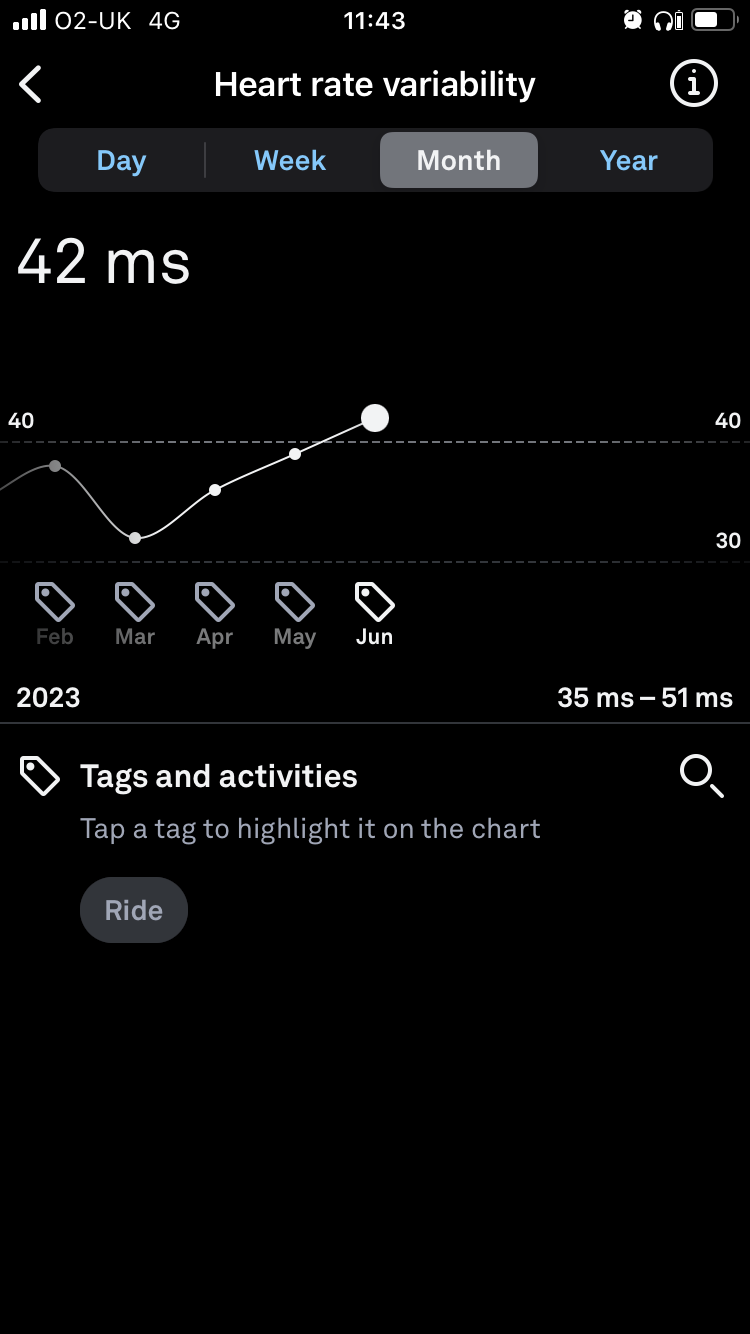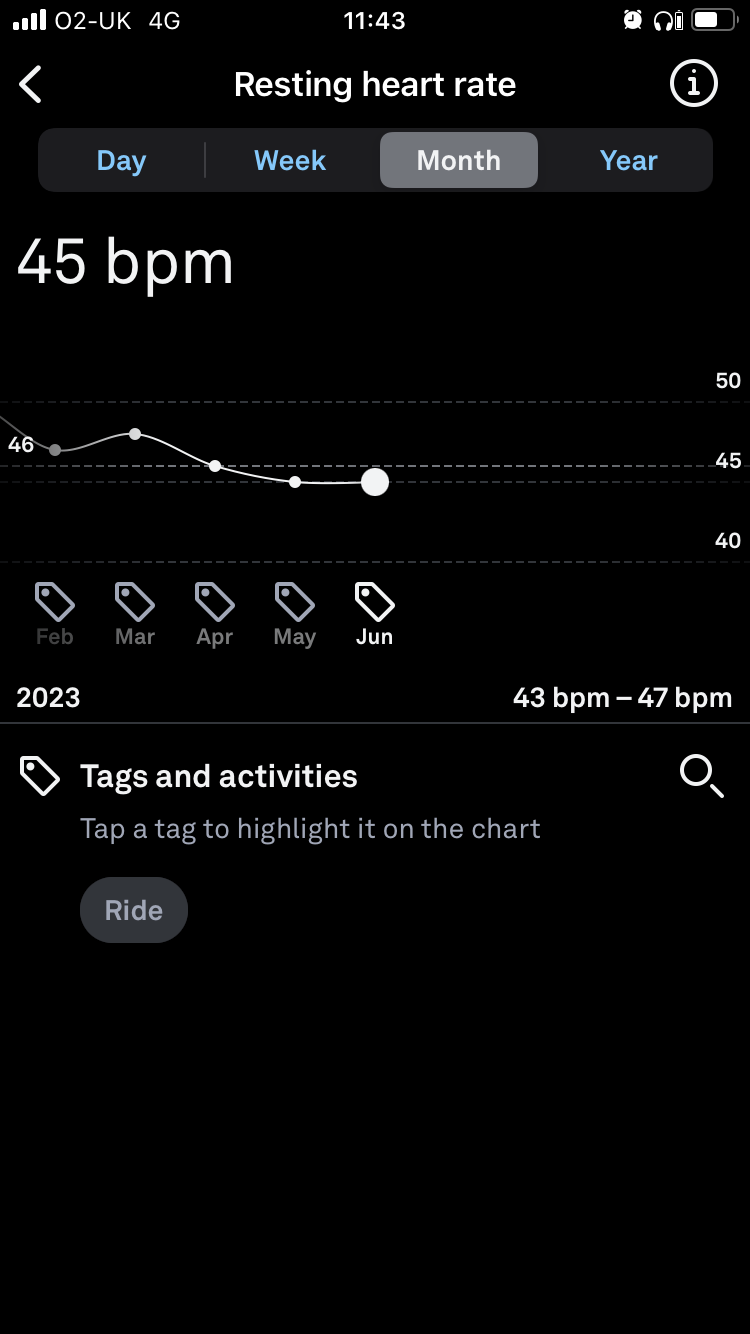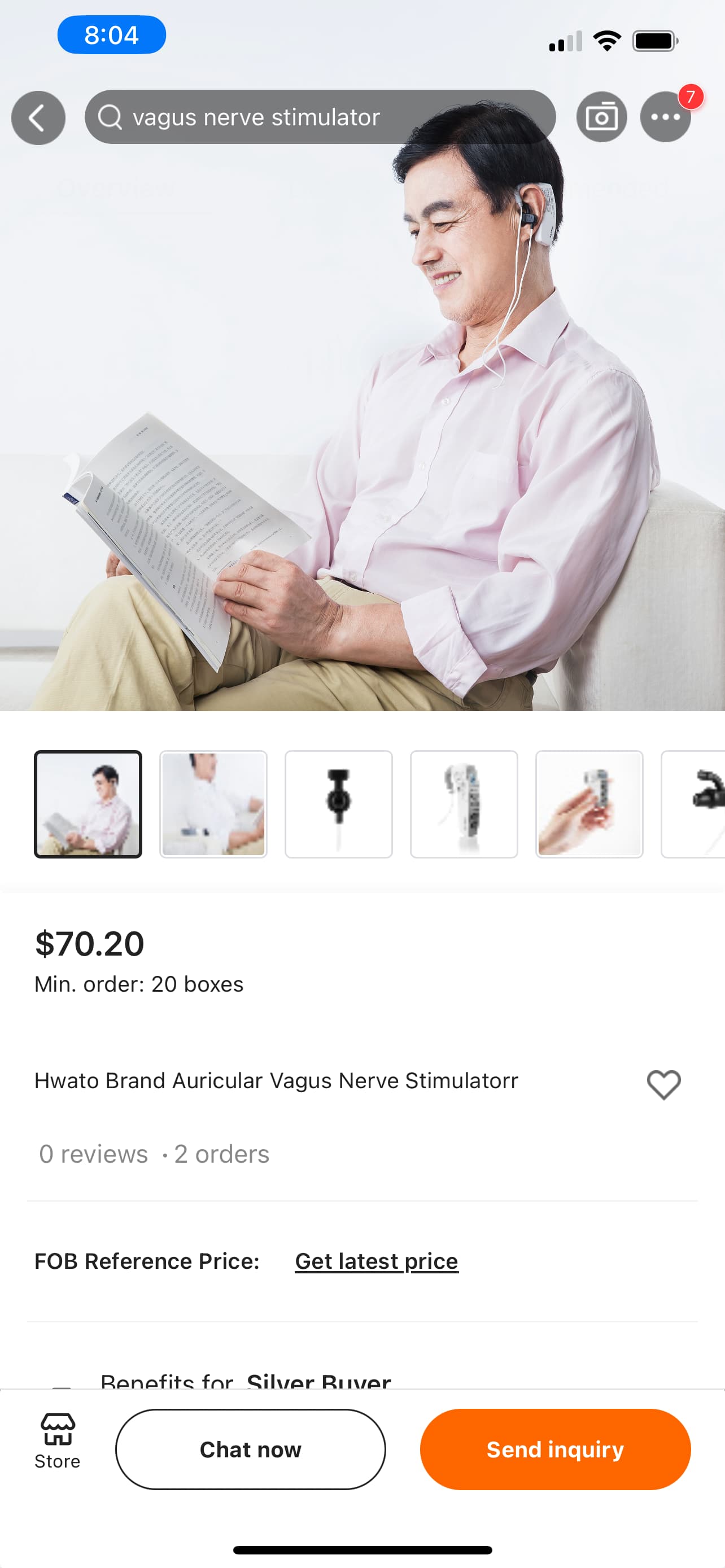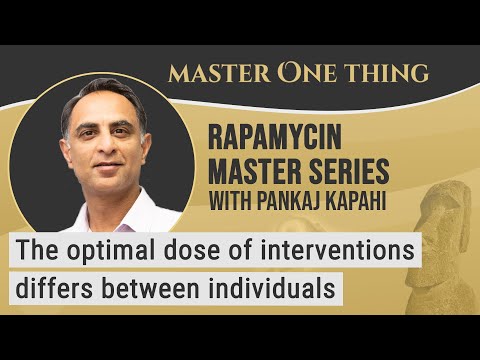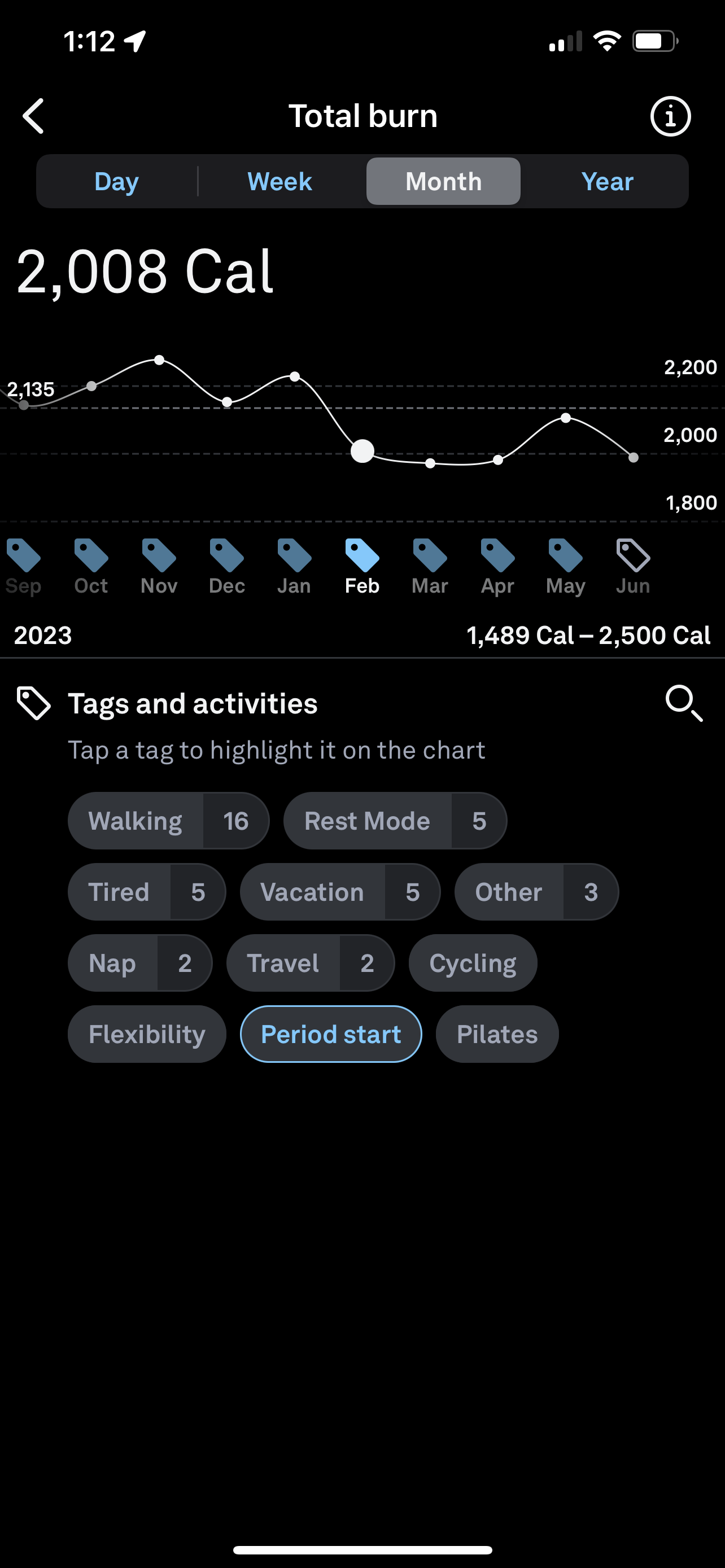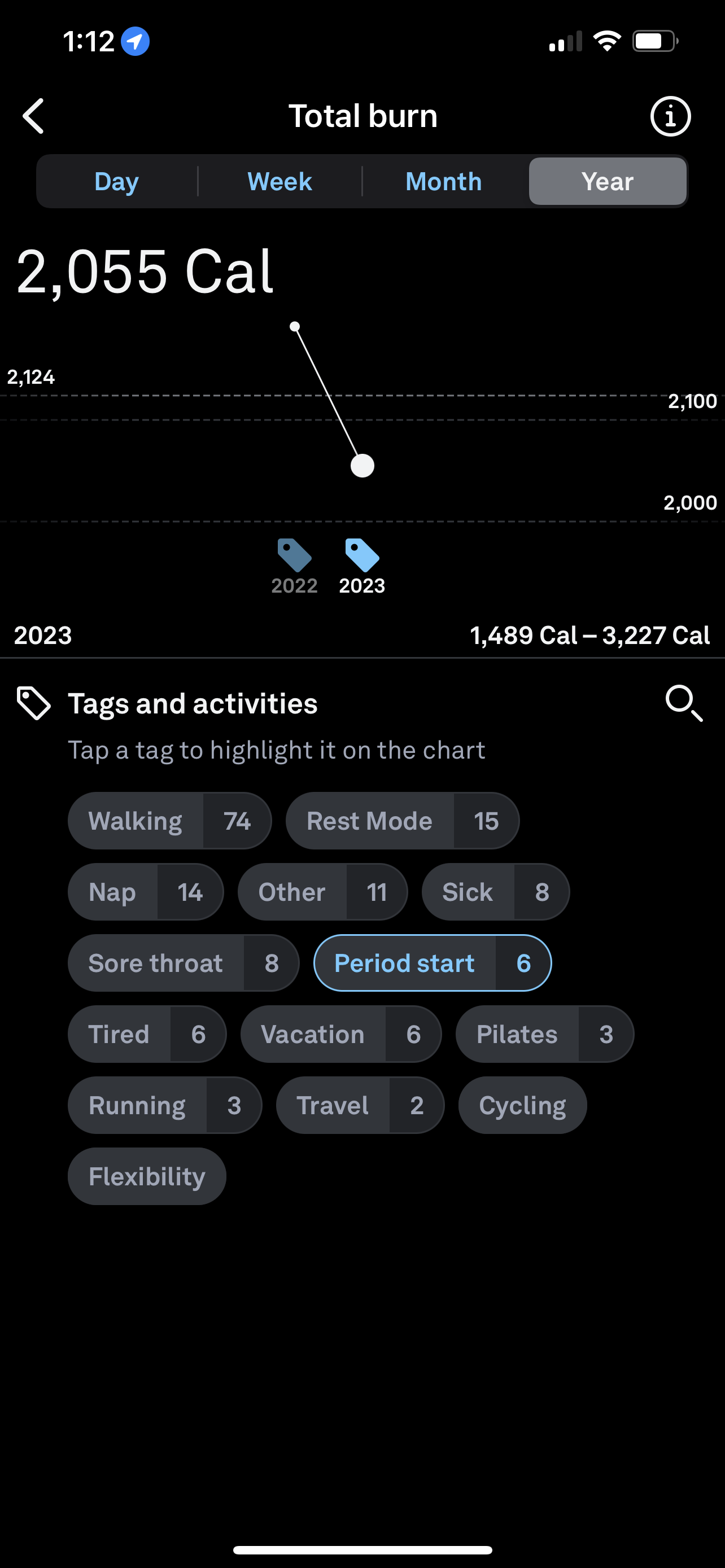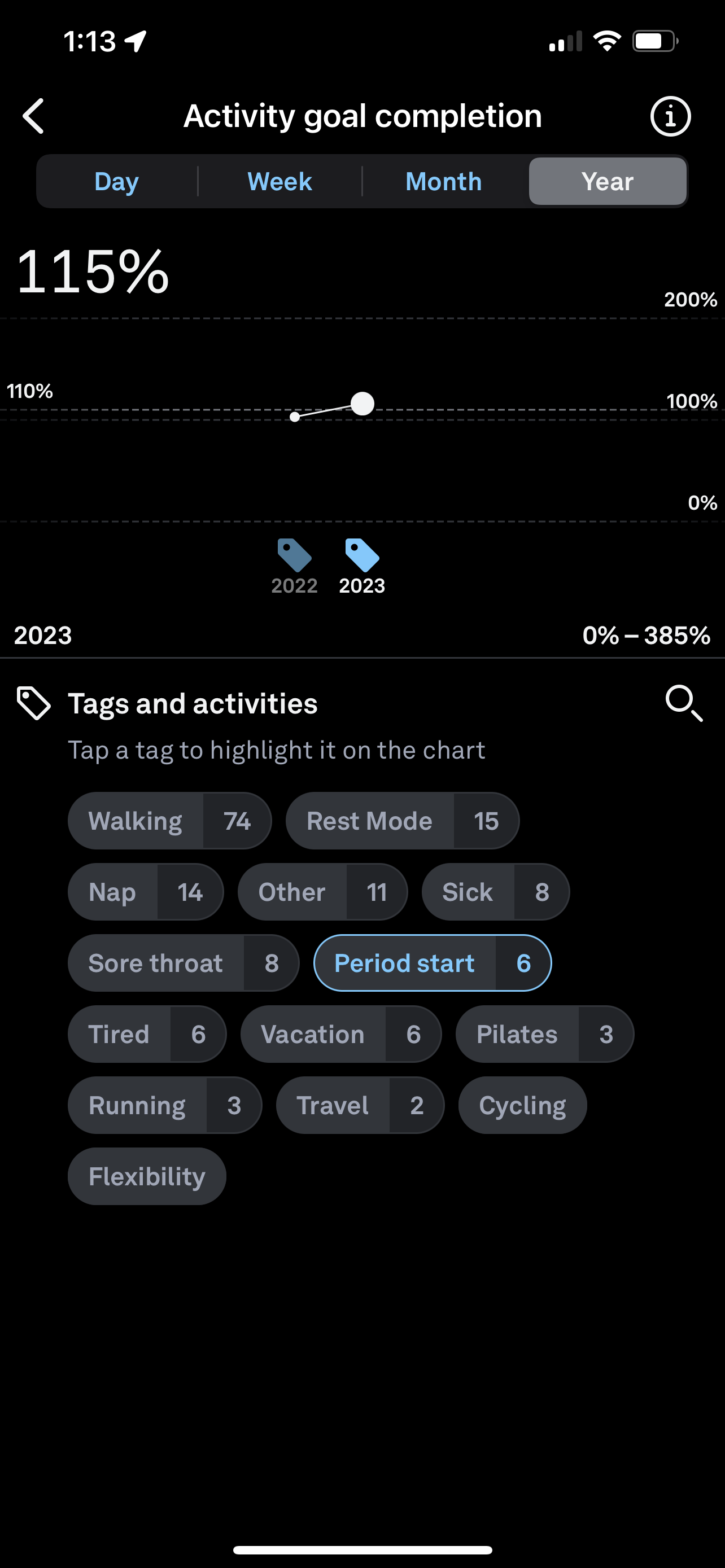I assume that lower is better - down from 11.2 BrPM to 10.8 BrPM over the past 7 weeks whilst sleeping.
Another thing I forgot to mention is that my HRV ‘spikes’ around waking time the morning following my dose of Rapamycin - 133 after first dose, 96 after 2nd, 78 after 3rd, 120 after 4th, 130 after 5th and 139 after 6th (latest). Previously I’ve only ever seen the odd spike above 100 - maybe once every two or three months and again early in the morning 6-8am. My averages are generally in the 20-40 range using Apple watch.
You posted this on Feb. 2 so the Feb. month had only 2 data points, I think. So it could have been an anomaly. Now that you have a few more months of data, do you notice a consistent trend, or did this resolve?
I typically get lower HRV and higher RHR on my rapa day and the following day. Then I bounce back. Overall long term my HRV is higher this year so far compared to last year and I think rapa is increasing my long term HRV.
Recently I also bought a HRV stimulant but haven’t used it a ton.
That seems quite low. Normal is 12-16 BrPM.
Which one did you get?
Great data thank you.
I found something similar - RHR, HRV, A1c and ApoB were all trending in the wrong direction.
I’ve never seen ANY longitudinal data that show key biomarkers moving in a positive direction from rapamycin treatment.
This one
Alibaba: Hwato Brand Auricular Vagus Nerve Stimulator
Not sure why Alibaba.com is not letting me link to it… but you can search with those keywords and you can get a single unit as a sample with express shipping around $30-40.
There were some surprisingly robust studies on ear stimulation of the vagus nerve so I got it. But I have only used it a handful of times so far and I don’t think it’s made any difference to my HRV so far. I know I’m supposed to use it daily or twice daily which I haven’t.
Apparently some scientists believe that 6-8 BrPM is the ideal in terms of helping longevity.
Thanks for your comments - appreciated.
I just watched this video on Youtube:
Professor Pankaj Kapahi who has a lab at the Buck Institute for Research on Aging. One of the original pioneer researchers. At around the 5 minute mark he discusses his dosing regime and why he believes that one size may not fit all. He doses 1mg qd for 14 days and then has a 14-21 day break. 2-3 weeks is the usual washout period for Rapamycin.
I may give it a try at 1mg qd in a week or so when the present dose should be out of my system.
I have full blood work again at the end of next week so I will see if there have been any significant changes. ApoB is also tested along with A1c - however I have been taking 25mg Acarbose tid for the past few weeks so those results may not be as useful.
My number of breaths per minute has gone slightly up this year but barely. From what I understand it’s not just about number of breaths but how we breathe as I can make an effort to take fewer and deeper breaths. But my total calories burned are way down since I started rapa, even though I’ve been more active (started rapa in February — and you can see my goal completion rate is higher this year, meaning more active calories burned, so my basal metabolic rate must be down from rapa).
Interesting - probably also a lot to do with the amount of blood oxygen saturation, my daily average is 94-97% and 90-100% overnight - average 96%. Which I assume is fine.
I can’t compare my own figures to yours however I notice that I have lost 3kg (5lbs) over the past month whilst my total burn has stayed around the same this month, as for the rest of the year, at 2468 cals, with goal completion at 166%. I’ve been resting for the past week - watching to see if my parameters return to their pre-Rapamycin levels.
My breaths per minute increases by 1 of I don’t mouth tape. I haven’t seen any impact on RHR, HRV, or BR from Rapa. I’ve been taking 6mg 1x/wk for 8 weeks.
What’s an HRV stimulant?
Things which enhance the parasympathetic nervous system.
or
The research I read was about increasing vagal tone via stimulation of the ear — the right ear, specifically. I bought a device on AliBaba that claims to do just that and it was much more reasonably priced than these ones, and more aligned with the research I read. For some reason I can’t link to it but look within AliBaba for vagal nerve stimulator. It’s the ear piece that costs $70 + shipping.
Where in the ear the electrodes are applied matters too. The greatest results were shown from the regions called cymba and cavum concha, which correspond exactly with the anatomical input of that AliBaba device, not so much with where BJ was wearing his device in the ear (on the tragus). And I saw no research validating that Pulsetto device around the neck (though it’s possible I’m missing it, but I looked — the last link has more re: cervical stimulation).
Would love to hear if the HRV stimulant works or not, I’m looking for one myself.
I’d love to see some 3rd party academic lab study these and see if they actually work. Anyone seen any good 3rd party data / studies?
